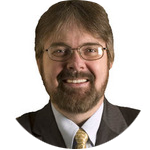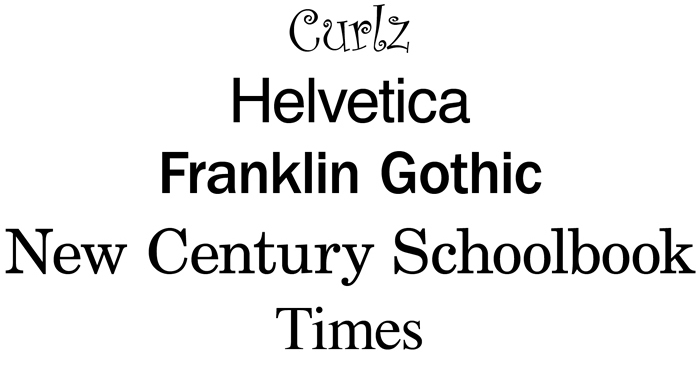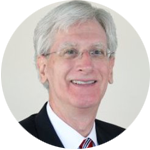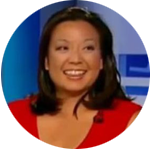Daily
The Burlington Free Press
Cape Cod Times
The Day
VT Ski & Ride Magazine
http://vtskiandride.com/
Providence Business News
http://www.pbn.com/
The Local
http://www.mvtimes.com/the-local/
Milton Times
http://www.miltontimes.com/
Mount Desert Islander
http://www.mdislander.com/
The Stowe Reporter
http://www.stowetoday.com/stowe_reporter/
Addison County Independent
http://www.addisonindependent.com/
Seven Days
http://www.sevendaysvt.com/
The Ellsworth American.
http://www.ellsworthamerican.com/
The Martha’s Vineyard Times
http://www.mvtimes.com/
Vineyard Gazette
https://vineyardgazette.com/
The Day
http://www.theday.com/
The Standard?Times
http://www.southcoasttoday.com/
Telegram & Gazette
http://www.telegram.com/

Kevin Slimp is director of the Institute of Newspaper Technology.
Email questions to him at
kevin@kevinslimp.com

While in Minnesota recently, I had an assignment similar to assignments I’ve had many times during the past 20 years: To spend a day with a small community newspaper group, meet with the management and staff
individually, then propose two optional plans with the same goal in mind.
The goal was to improve the editorial and production workflow, thereby improving the quality of the publication and efficiency of the operation. Sounds simple enough, and having completed similar assignments hundreds of times before, I felt up to the task.
Every newspaper is different, so I keep their particular needs in mind when offering advice. This group is in a process that many of us find ourselves in: determining whether to tweak the current workflow using the tools available, or to upgrade hardware and software throughout the organization to achieve monumental jumps in efficiency.
I understand the dilemma. Having owned several publications in the past, plus a couple of companies right now, I know what it’s like to make upfront purchases to see long-term gains.
Perhaps you are in the same dilemma. Should I purchase new hardware and upgrade software at the same time, or will everything be OK if we upgrade software on our current machines? Would my staff be more efficient with training or is it a waste of time? If I train staff members too much, will they run off and find a higher paying job somewhere else?
The questions go on. What about camera raw? Will it improve my product or just slow down my workflow? Am I spending enough time on my digital products or am I spending too much time on them?
Do I have too many or too few staff members? Are they organized in the most efficient manner? Should we create our website in-house or use an outside vendor? The questions could go on forever. It’s enough to bring on a panic attack.
Don’t panic. Let me suggest a few things to think about when faced with similar questions. Let us consider hardware and software today, and I will discuss other issues in upcoming columns.
Q. Is my hardware too old? Is it all going to come crashing down?
A. Hardware is a delicate issue. One of the quickest ways to improve efficiency is to improve the tools we use. Why do you think Amazon is always investing in new robots and distribution methods? Hardware isn’t cheap, however, and no one wants to waste money.
I would suggest newspapers look over their current hardware and ask a few questions. How old are my
computers? If you are working on machines more than six years old, chances are they are getting pretty slow and produce all kinds of delays. I’ve noticed six years is kind of a magic point for computers. Yes, Macs can last forever, but like anything else they slow down in time. And Windows-based machines slow down more quickly than Macs. It’s just a fact of life.
I have four computers I primarily use in my work. One is an eight-year-old iMac. It still works and is fine for word processing and less intensive processes. But I notice lately that it even slows down during simple tasks like checking email. I wouldn’t dare waste my time trying to crank out pages on that computer. Sure I could do it, but it would take three times as long as creating the same pages on my two-year old iMac.
Q. What can I do to get the most of my current hardware?
A. If hardware is slowing down your workflow but new computers aren’t in the budget, one of the easiest ways to get more from your machine is to maximize its RAM memory. RAM isn’t expensive these days and I’ve seen machines double or even triple in speed by upgrading their current RAM to higher levels. Most computers can hold 8 to 16 gigabytes of RAM. Check to see how much your machines have and how much they can hold, and make an investment (usually under $100) to maximize the memory in each machine.
Q. Is my software too old? Do I really need to pay a monthly fee to keep from falling too far behind?
A. Maybe, maybe not. About a third of the newspapers I visit are using the most recent design software. If you’re an Adobe user, that means the Creative Cloud version, which requires a monthly subscription.
Does this mean you’re behind the curve if you have older software? Again, maybe or maybe not. I don’t work for Adobe or Quark, so I have no reason to mislead you.
You don’t have to have the latest version of InDesign or Quark to be efficient. I have three versions of
Adobe’s software on the machine I’m using right now: CS5, CS6 and CC. I’ve noticed no big difference in speed between CS6 and CC. That’s also the case on other machines I use. So if your staff is using CS6 software, speed probably isn’t an issue. If it is, you should check the RAM memory, as mentioned earlier. You might want to upgrade to Creative Cloud for other reasons but speed probably isn’t one of them.
You might even be OK with Adobe CS5 or 5.5. If things seem to be moving along nicely and you are getting your ads and pages out in a timely manner, you might be safe for now. I wouldn’t plan to use CS5 for several more years, but your operation won’t come crashing down in the near future because of software issues.
If you are using really old software like CS or CS2 (even CS3), however, your days are numbered. One day in the not-too-distant future, you might walk in to learn no one can get pages out. Even if that weren’t a possibility — and it is — it’s taking at least twice as long as it should to get your product out the door using old software.
CS3 was released just under 10 years ago. Not many of us are driving the same cars we were in 2007. And if we are, we’re probably thinking about upgrading to a newer model.
It’s interesting that we often update our cars before updating the things that provide our financial security. We forget that time is money. If it takes twice as long to get an issue designed because of old software and
computers, the amount of time it would take to recoup the cost of new equipment is minimal.
As I tell my clients, I’ll be home in a couple of days. So do what you think is best. But if it were my decision, I wouldn’t wait too long before upgrading any older software and hardware.

ED HENNINGER is an independent newspaper consultant and the director of Henninger Consulting.
Website: www.henningerconsulting.com
Phone: (803) 327-3322
WANT A FREE evaluation of your newspaper’s design?
Just contact Ed: edh@henningerconsulting.com | (803) 327-3322
IF THIS COLUMN has been helpful, you might be interested in Ed’s books: “Henninger on Design” and “101 Henninger Helpful Hints.” With the help of Ed’s books, you’ll immediately have a better idea how to design for your readers. Find out more about “Henninger on Design” and “101 Henninger Helpful Hints” by visiting Ed’s website: www.henningerconsulting.com

Some typefaces are just downright strange. Like Curlz. I just can’t bring myself to believe that someone was serious about designing that one.
And there’s Dom Casual. And Hobo. And (of course!) Comic Sans.
You never … ever … use any of those typefaces. Right?
Ah … but I’ll bet some of you are still using Times. Or Helvetica. Maybe New Century Schoolbook. Or Franklin Gothic. If so, you really need to toss those and go with something better. I’ll have some suggestions in a coming column.
Here’s a list of 20 typefaces (actually, 16 typefaces and 4 complete groups) I’d toss, along with a few words why:
Arial: Basically, it’s a Helvetica (more in a moment) knockoff. Looks like a genuine simulated imitation faux Helvetica.
Avant Garde: Designed in the 1960s. That was more than 50 years ago. Not so avant garde now.
Brush Script: No one ever writes like that.
Chancery: Is there any place in your newspaper where Chancery is appropriate?
Comic Sans: The target of a lot of jokes. Deservedly so.
Curlz: Seriously?
Dom Casual: I can’t even think of a schoolroom poster where this would make sense to use.
Helvetica: A darling of designers for decades. But it has been soooo overused. It’s a dead horse. Stop beating it.
Hobo: A cousin of Dom Casual … and just as silly.
Franklin Gothic: Designers jumped on this typeface in the ’80s as an attractive alternative to Helvetica. Then they rode this horse till it, too, collapsed and died.
Mistral: It’s different. Too different.
New Century Schoolbook: Easy to read for text but too round and takes up too much space. There are better choices.
Papyrus: Designers of menus and movie posters wore this typeface out within a year or two. It’s cliché.
Souvenir: Floppy, insipid.
Times: Still a darling of many publishers. But Times (and, yes, Times New Roman) is timeworn. And there are many better choices for text.
Trajan: Another typeface done in by Hollywood. Very classic and very overused.
Blackletter type: Yes, it’s still OK to use Olde Englishe for your nameplate. Nowhere else.
Dingbat fonts: Why clutter your system with junk?
Grunge fonts: Can we puhleeze stop with the angst?
Typewriter fonts: Oh, please. It’s the 21st Century!
Some of you will disagree, especially about Helvetica and Times. That’s OK. It’s still your newspaper.
Some of you might think there are other typefaces that need to be on the “toss list.” Send me a quick email at edh@henningerconsulting.com and I’ll do a follow-up.

John Foust has conducted training programs for thousands of newspaper advertising professionals. Many ad departments are using his training videos to save time and get quick results from in-house training.
Email for information: john@johnfoust.com
![]()
Brandon is an advertising manager who wants his team to be prepared for all sales situations.
“We spend a lot of time on sales strategy because that helps us cut down on unexpected surprises,” he said. “To use a baseball comparison, we want to be able to hit the curveball.
“As any salesperson will tell you, the most common curveball is an objection,” Brandon explained. “Most prospects have some kind of objection, even if they don’t say it out loud. Unspoken objections can be real sales killers. You’re sailing along thinking everything is going fine, then at the end of the conversation the prospect says, ‘I’ll think about it and let you know.’ That creates a real predicament for a salesperson.
“There’s an old saying that silence is golden, but that’s not true in selling,” Brandon said. “Sometimes it’s your job to verbalize what the prospect is thinking. If you don’t, the objection that is lurking below the surface may never come to light. I disagree with the idea that you can’t answer an objection you don’t hear. An unspoken objection can sink your presentation just as fast as one that is shouted.”
Brandon explained that the key is to be prepared to weave answers to objections into the presentation. The good news is that most objections are predictable. If a salesperson has done his or her homework, there’s no reason to be surprised to hear a question about price, readership statistics, ad position or production.
“Take price, for example,” he said. “A prospect may be embarrassed to say, ‘I don’t think I can afford to advertise in your paper.’ You can address that by bringing up the objection yourself, then reassuring them that it’s natural to be concerned about price. I encourage our team to say something like, ‘Some advertisers wonder about the affordability of advertising in our paper.’ Or ‘People often ask how our rates compare to other media outlets.’ Or ‘You may be wondering how this could fit your ad budget.’ Then they answer the objection just like they would if the prospect brought it up.”
That is a variation of the old Feel-Felt-Found formula, which says, “I understand how you feel about price. Other advertisers have felt the same way. And they found benefits such as … ” The difference here is that the salesperson brings up the topic. But as Brandon cautions, don’t use the words “feel, “felt” or “found.” That formula has been around so long – and those words have been misused by so many salespeople – that they can make prospects think they are being manipulated.
“Some prospects actually seem relieved when a difficult objection is mentioned by the salesperson,” he said. “I’ve seen them nod their heads and say, ‘Yeah, I was thinking about that.’ In a sense, it clears the air and makes them more receptive in the rest of the conversation.”
In other words, your prospects probably won’t object when you mention their unspoken objections.
MASSACHUSETTS
Peter Doucette was named The Boston Globe’s chief consumer revenue officer, effective Nov. 21. Doucette has been the Globe’s vice president of consumer sales and marketing for the past six years. He will still oversee the newspaper’s circulation, and the product and development teams will now report to him. Doucette began his newspaper career in 2007 as director of consumer marketing for the Globe. He helped create the separate site strategy for Boston.com and BostonGlobe.com. Before that, Doucette was vice president of marketing from 2000 to 2007 for Grand Circle Travel, a Boston-based leisure and travel company.
The Transitions were written, at least in part, from published reports by Bulletin correspondent Alejandro Serrano, an undergraduate student in the Northeastern University School of Journalism.

Tracy Jan has left The Boston Globe to begin a new beat Dec. 5 reporting on the relationship between the economy and race for The Washington Post’s Wonkblog. Jan began her journalism career in September 2000 as a crime and courts reporter at The Oregonian of Portland, Ore. After four years, she left the Oregonian and began covering kindergarten through grade 12 education for the Boston Globe. Most recently, Jan covered national politics and health-care policy in the Globe’s Washington, D.C., bureau. She studied morality and money in medicine as a University of Michigan Knight-Wallace Fellow in the fall of 2014 and spring of 2015. Jan has won several awards for her reporting, including a National Headliner Award for her coverage of Boston English High School in 2008. Jan’s new beat at the Washington Post will be launched from the Post’s business desk.
The Transitions were written, at least in part, from published reports by Bulletin correspondent Alejandro Serrano, an undergraduate student in the Northeastern University School of Journalism.